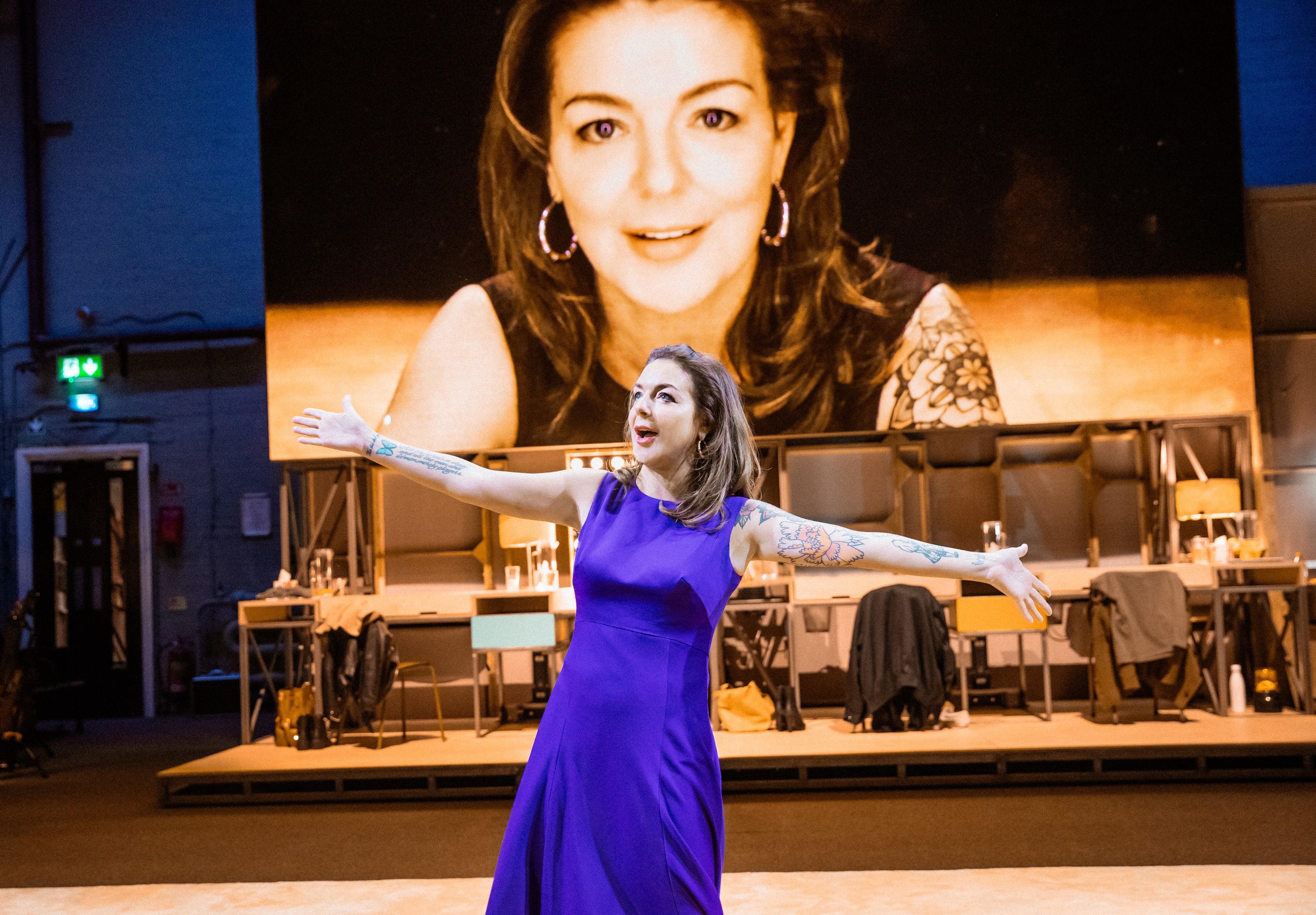Opening Night review: Sheridan Smith exquisitely self-destructs in weird meta-West End musical
Rufus Wainwright’s songs reach new emotional heights, Smith’s performance is radiant – but Ivo van Hove’s stage adaptation of John Cassavetes’s 1977 film is sometimes misjudged

Anyone who bought tickets to Opening Night in the hope of seeing its star Sheridan Smith treating us to a bit of thespy, Funny Girl-style razzle dazzle is in for a serious shock. Belgian avant-garde theatre director Ivo Van Hove’s musical, set backstage during a show, is determinedly unflashy and oblique, dimly illuminated by singer-songwriter Rufus Wainwright’s operatic torch songs. In fact, it feels a bit like the whole cast is trolling musical theatre fans: they linger like bedraggled pigeons in the corners of a vast unornamented stage, capturing the inertia, rather than the glamour, of backstage life. It’s flawed, but intermittently haunting.
Van Hove has lifted the story and script straight from pioneering director John Cassavetes’s 1977 film Opening Night, a psychologically intense look at a nervy, alcoholic actor struggling to adjust to playing the role of an older woman for the first time. Myrtle is a role that jabs at 42-year-old Smith’s own tender spots – her widely-publicised battles with anxiety and drinking. At Wainwright’s, too – he’s explored his relationship with alcohol and crystal meth in songs like “Go or Go Ahead”. So it’s unsurprising that both do stellar work here. Smith radiates a raw hunger for love, attention and meaning as she tries to make sense of an underwritten part by writer Sarah (Nicola Hughes), while director Manny (Hadley Fraser) tears his hair out at her constant ad-libs and on-stage rebellions.
These scenes really capture the cruelty of theatre, the way that the best actors must pour their whole selves into a system that only rewards reliability and success on stage, not the nerve-wrenching internal work it’s built on. And while Wainwright has always shown a genius for creating whole sonic and emotional worlds in brief songs, he reaches new heights here. The most classically “musical theatre” number is “Magic”, Myrtle’s razzmatazz-fuelled song about converting tragedy into sparkle, with knowing vamps and winks galore from Smith. But there are greater fireworks still from the more ambitious numbers, like jazzy first act closer “Life is Thin” with Bond movie theme song levels of brooding glamour, or the baroque, harpsichord-laced “Trying To”, capturing the knife-edge tension of Myrtle’s mental state as opening night approaches.
Still, Van Hove’s production isn’t sturdily built enough to contain all this emotion: it flattens and muddles where it could heighten. He introduces a documentary crew who are filming the rehearsal process, presumably to make sense of the now-familiar device of live camera feeds magnifying the casts’ faces on big screens. But they’re quickly, inexplicably dropped. The supernatural themes of the second act are hopelessly misjudged, too: Shira Haas is full of punky, oddly sexualised rebellion as Nancy, the ghost of one of Myrtle’s fans, but when she’s dispatched with a standard lamp it’s farcical, not haunting.
All in all, there’s an unfortunate irony here. Smith plays an actor self-destructing as she tries to make sense of the nonsensical role she’s been handed. But her own part here is pitifully underthought too, its vague references to menopause doing little to show what it’s actually like to be a woman facing down her future in a sexist, ageist industry.
At the curtain call, the cast smugly break into the closest thing to an actual choreographed musical number we’ve seen all show, capping off an ending that veers away from resolving the story’s themes into a kind of manic surrealism. It won’t be enough to satisfy musical theatre fans, let alone anyone who likes their show tunes with a side of psychological realism. Still, it’s a fittingly weird finale to an evening that captures the twilit messiness of addiction, while leaving the real drama just offstage.
Gielgud Theatre, until 27 July
Subscribe to Independent Premium to bookmark this article
Want to bookmark your favourite articles and stories to read or reference later? Start your Independent Premium subscription today.

Join our commenting forum
Join thought-provoking conversations, follow other Independent readers and see their replies